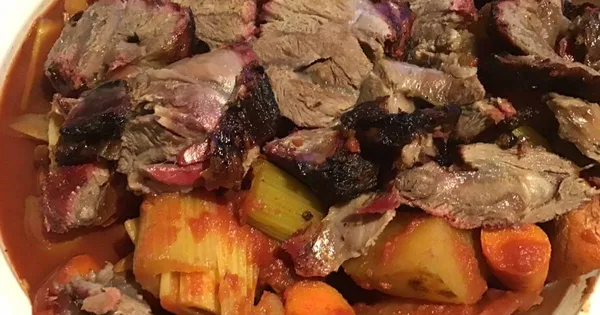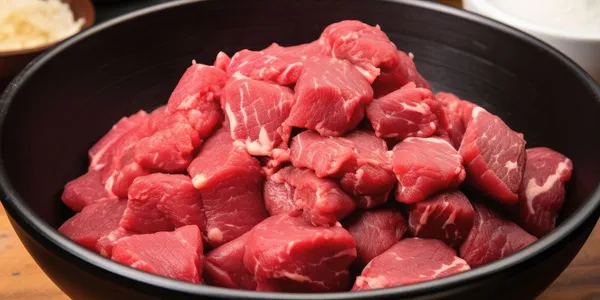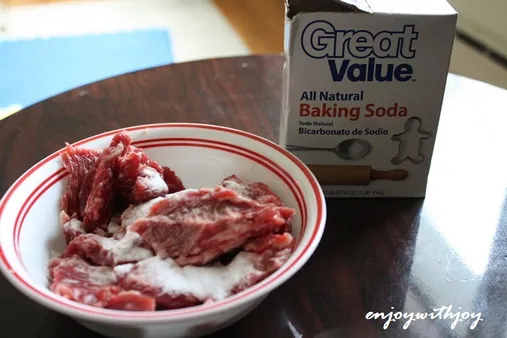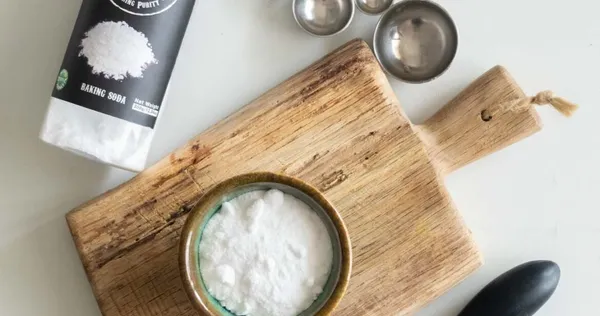Table of Contents
Unlock the secret to incredibly tender and flavorful meat with a surprising ingredient you probably already have in your pantry: baking soda. baking soda as a tenderizer might sound unusual, but this kitchen staple does more than just make your cakes rise. At tauhuichiban, we're passionate about sharing culinary tips and tricks that elevate your cooking, and using baking soda for tenderizing meat is a game-changer.
Baking Soda Technique | Meat Type | Amount of Baking Soda | Resting Time |
|---|---|---|---|
Dry Brine | Large cuts of meat (beef, pork, lamb) | 1% of meat's weight | 3 hours to overnight |
Velveting | Thinly sliced meat (beef, chicken, pork) | 1 teaspoon per 1 cup of water | 15-20 minutes |
Ground Meat Tenderizing | Ground beef, pork, turkey | ¼ teaspoon per 12 ounces of meat | 15-20 minutes |
Small Piece Tenderizing | Bite-sized meat, poultry, seafood | 1 teaspoon per pound of meat | 30 minutes, then rinsed thoroughly |

Unlock Tender Meat Magic: Baking Soda As A Tenderizer
1. Baking Soda: The Science Behind Meat Tenderizing
Imagine baking soda as a tiny superhero, swooping in to soften tough meat fibers! It's all about a bit of kitchen chemistry. You see, baking soda is alkaline, which means it can change the pH level on the surface of the meat. When that happens, it's like the baking soda is gently breaking down those strong protein bonds that make meat tough. Think of it like this: those proteins are like tightly wound springs, and baking soda helps them unwind a bit, resulting in juicier, more tender bites.

Baking Soda: The Science Behind Meat Tenderizing
2. Baking Soda Tenderizing: Practical Tips and Techniques
Dry Brining: A Pinch of Magic for Big Cuts
Imagine you're making a roast for a family dinner. You want it super tender, right? That's where dry brining with baking soda comes in! It's like giving your roast a magical spa treatment. Just sprinkle a little baking soda on all sides (about a teaspoon for every pound of meat). Then, rub it in gently, like you're giving your roast a little massage! Pop it in the fridge for a few hours or even overnight. The baking soda works its magic slowly, breaking down those tough fibers and making your roast amazingly juicy and flavorful.
Velveting: Silky Smooth Stir-Fries
Ever wonder how restaurants get their stir-fried meat so incredibly tender? It's a secret weapon called "velveting." Don't worry, no velvet fabric is involved! It just means soaking thin slices of meat in a mixture of water and baking soda for about 15 minutes. This quick bath helps the meat hold onto moisture, so it stays super tender even when cooked quickly in a hot wok. Your stir-fries will be bursting with flavor and have that melt-in-your-mouth texture everyone loves!

Baking Soda Tenderizing: Practical Tips and Techniques
3. Baking Soda Tenderizer: Beyond the Basics
Baking soda isn't just for tenderizing whole cuts of meat or thin slices. It can also work wonders on smaller pieces like ground beef or even seafood! Think of baking soda as a tiny magician, transforming tough textures into something melt-in-your-mouth delicious.
For example, if you're making burgers, a pinch of baking soda can help them become super juicy and flavorful. Just sprinkle a quarter teaspoon of baking soda onto a pound of ground beef, give it a gentle mix, and let it sit for about 15 minutes before grilling or frying. The baking soda helps the meat retain moisture, resulting in burgers that are incredibly tender and flavorful.
Meat Type | Baking Soda Amount | Resting Time |
|---|---|---|
Ground Beef | ¼ teaspoon per pound | 15 minutes |
Chicken Breast | 1 teaspoon per pound | 30 minutes |
Shrimp | 1 teaspoon per pound | 15 minutes |
You can also use baking soda to tenderize seafood, especially if you're using a firmer variety like shrimp or fish. Just sprinkle a teaspoon of baking soda per pound of seafood, mix it gently, and let it sit for about 15 minutes. This technique helps the seafood retain moisture and become more tender, especially when cooked quickly over high heat.
Remember, baking soda is a powerful tool, so it's important to use it sparingly and follow the recommended guidelines. Too much baking soda can make your meat mushy, so don't go overboard!
- Always rinse the meat thoroughly after using baking soda to remove any excess.
- Don't use baking soda on thick steaks or large cuts of meat, as it can make the surface mushy.
- Experiment with different recipes and techniques to find what works best for you.

Baking Soda Tenderizer: Beyond the Basics
Final Thought
Baking soda as a tenderizer is a simple yet powerful technique that can significantly elevate your cooking. By understanding the science behind it and mastering the various applications, you can consistently achieve tender, flavorful meat that will impress your family and friends. So, embrace the versatility of baking soda and unlock a world of culinary possibilities.